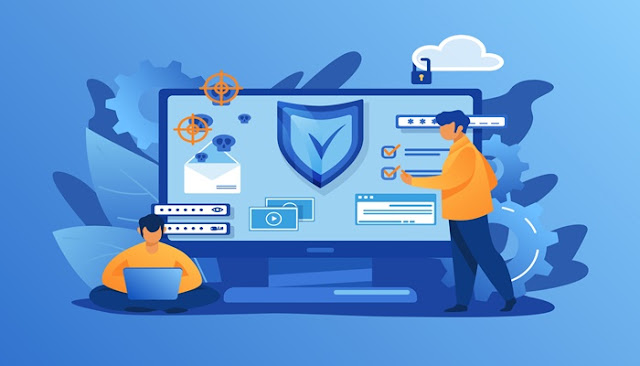Introduction
The internet has become essential for work, allowing remote jobs and online job hunting. It's a game-changer in education, providing access to tons of resources, e-learning, and research materials. Plus, it's completely transformed how we socialize, linking people worldwide through social media, messaging apps, and online communities.
While using the web has many benefits, according to ExpressVPN, it’s important to know about cyber threats and security measures you can take to protect your personal data online. This article will explore some of the best practices you can implement to safeguard your online privacy.
Important Internet Safety Advice
When you or your family are online, we advise that you abide by this crucial internet safety advice to prevent all of these risks:
→ Use a secure internet connection
When you use a public Wi-Fi connection, you have no direct control over its security, which could leave you vulnerable to cyberattacks. So, if you are using public Wi-Fi, it's strongly recommended to use a VPN to encrypt your data and ensure your online privacy, especially when conducting sensitive transactions like online banking or shopping.
→ Pick secure passwords.
One of the largest cybersecurity weak points is passwords. Using the same password across several websites increases the risk to your data. If hackers get your login information from one website, they may be able to access other websites that utilize the same information.
A password manager like 1Password can be useful. Password managers assist users in developing secure passwords, saving them in a digital vault, and retrieving them when entering into accounts online.
→ Enable multi-factor authentication.
MFA, such as Okta, is a type of authentication that requires users to give two or more verification factors to access an online account. Cyberattack success rates are reduced with multifactor authentication.
→ Update your operating systems and software.
By keeping an eye on the most recent threats and releasing security fixes when necessary, developers are always trying to make their products safe. You will access the most recent security fixes using the most recent versions of your operating systems and applications. This is particularly crucial for apps that store sensitive information regarding a user's payments, health, or other areas.
→ Verify that websites appear to be trustworthy.
Every website you visit must be trustworthy, especially those you do online transactions with. An SSL/security certificate is a crucial thing to watch out for.
→ Check your privacy settings and become familiar with privacy rules.
Since so much data is used for marketing, advertising, and hacking reasons, it's a good idea to study the privacy policies of websites and applications you use to understand how your data is gathered and analyzed. Although your settings may be set to private, keep in mind that hardly much of your online activity is truly secret. The information you consider private might nevertheless be accessible to website administrators, hackers, and law enforcement.
→ Be cautious while clicking on any dodgy links.
A thoughtless click may reveal your private information online or introduce malware into your computer. Because of this, it's important to surf carefully and steer clear of some kinds of online information.
→ Ensure the security of your gadgets.
It's a good idea to use passwords as well as other security features like fingerprint readers or face-scanning technologies on all of your gadgets.
→ Take caution about where and what you publish.
There is no delete key on the internet. Any image or comment you upload to the internet might remain there indefinitely since deleting the original won't delete any duplicates others might have made. You cannot 'take back' a statement you regret making or take down an unpleasant picture you uploaded.
→ Be cautious while sharing private information about yourself online.
Think twice before submitting or displaying your email address anywhere. It is distinct from the one you use for friends and family and only used for email sign-ups and subscriptions to the one used for work.
Conclusion
Keeping yourself safe on the web is your duty. Keep in check the things you browse over the internet and what you post. Remember, nothing is ever deleted from the web once it is uploaded. So, be cautious before uploading anything that could be sensitive, and if any malicious act is observed, contact the nearest cybercrime branch. Reporting such crimes would spread awareness among people to use the web responsibly.

No comments:
Post a Comment